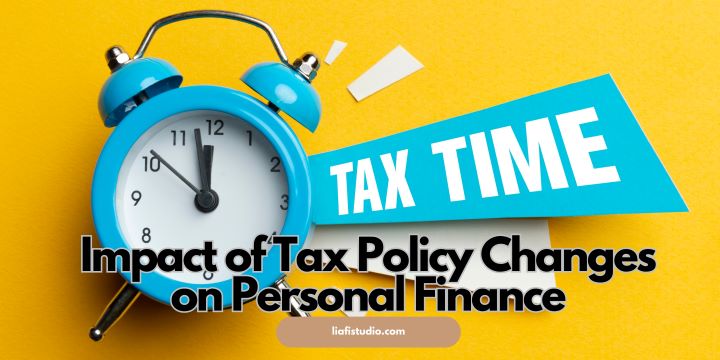Before embarking on a journey into the administrative field, it is crucial for individuals to take a step back and evaluate their existing skills and experiences. This self-assessment serves as a foundation for understanding how one’s background aligns with the demands of administrative roles. Individuals should consider their organizational abilities, communication skills, and proficiency with various software applications.
By identifying strengths and weaknesses, they can better position themselves for success in a competitive job market. Moreover, reflecting on past experiences can reveal transferable skills that may not be immediately apparent. For instance, someone who has worked in customer service may possess strong interpersonal skills that are invaluable in an administrative setting.
Similarly, experience in project management can translate into effective task prioritization and time management. By cataloging these experiences, individuals can create a comprehensive picture of their qualifications, which will be instrumental in the subsequent steps of their career transition.
Key Takeaways
- Assess your current skills and experience to identify areas for improvement and development in the administrative field.
- Research the administrative field to understand the current trends, job requirements, and potential career paths.
- Network and make connections with professionals in the administrative field to gain insights and opportunities for growth.
- Update your resume and cover letter to highlight relevant skills and experience for administrative positions.
- Gain relevant experience through internships, volunteer work, or part-time positions to enhance your qualifications for administrative roles.
Researching the Administrative Field
Once individuals have assessed their skills and experiences, the next step involves delving into the administrative field itself. This research phase is essential for understanding the various roles available, the skills required, and the industry trends that may influence job opportunities. By exploring job descriptions and industry reports, individuals can gain insights into what employers are seeking in candidates.
This knowledge will not only inform their job search but also help them tailor their applications to meet specific requirements. Additionally, understanding the nuances of different administrative roles can aid individuals in identifying which positions align best with their interests and capabilities. For example, some may find themselves drawn to executive assistant roles that require high-level organizational skills and discretion, while others may prefer office management positions that involve overseeing daily operations.
By conducting thorough research, individuals can make informed decisions about their career paths and set realistic goals for their job search.
Networking and Making Connections
Networking plays a pivotal role in any job search, particularly in the administrative field where personal connections can often lead to opportunities. Individuals should actively seek to expand their professional network by attending industry events, joining relevant online forums, and connecting with former colleagues or classmates. Engaging with others in the field can provide valuable insights into job openings and company cultures that may not be advertised publicly.
Moreover, building relationships with professionals in the administrative sector can lead to mentorship opportunities. A mentor can offer guidance on navigating the job market, provide feedback on resumes and cover letters, and share their own experiences in the field. By fostering these connections, individuals not only enhance their chances of finding job opportunities but also gain access to a wealth of knowledge that can aid in their professional development.
Updating Your Resume and Cover Letter
| Metrics | Resume | Cover Letter |
|---|---|---|
| Word Count | 300-500 words | 250-400 words |
| Sections | Contact Information, Summary, Experience, Education, Skills | Contact Information, Salutation, Introduction, Body, Conclusion |
| Keywords | Include relevant industry keywords | Incorporate job-specific keywords |
| Formatting | Use bullet points, bold headings, and clear sections | Follow a professional business letter format |
| Customization | Tailor for each job application | Personalize for each employer |
With a clearer understanding of the administrative field and a network of connections established, individuals should focus on updating their resumes and cover letters. A well-crafted resume is essential for making a strong first impression on potential employers. It should highlight relevant skills, experiences, and accomplishments in a clear and concise manner.
Tailoring the resume to each specific job application is crucial; this means using keywords from the job description to demonstrate alignment with the employer’s needs. In addition to the resume, a compelling cover letter can set candidates apart from other applicants. This document should not only reiterate key qualifications but also convey enthusiasm for the role and the organization.
By sharing personal anecdotes or insights gained from research about the company, candidates can create a narrative that resonates with hiring managers. Together, an updated resume and cover letter serve as powerful tools in securing interviews and advancing one’s career in administration.
Gaining Relevant Experience
For those transitioning into the administrative field, gaining relevant experience is often a critical step. This can be achieved through various avenues such as internships, volunteer work, or part-time positions that allow individuals to develop essential skills. Even if these opportunities are not directly related to administration, they can provide valuable experience in areas such as customer service, project coordination, or office management.
Additionally, individuals should consider seeking out temporary or contract positions that offer exposure to different administrative functions. These roles can provide hands-on experience while allowing candidates to build their professional network within the industry. By actively pursuing opportunities to gain relevant experience, individuals can enhance their resumes and demonstrate their commitment to transitioning into an administrative career.
Developing New Skills
As the administrative landscape continues to evolve with advancements in technology and changing workplace dynamics, it is essential for individuals to stay current by developing new skills. This may involve taking online courses or attending workshops focused on software applications commonly used in administrative roles, such as Microsoft Office Suite or project management tools like Trello or Asana. By acquiring these skills, candidates can increase their marketability and demonstrate their readiness for the demands of modern administrative positions.
Furthermore, soft skills such as communication, problem-solving, and adaptability are equally important in the administrative field. Individuals should seek opportunities to enhance these abilities through practice or training programs. Engaging in public speaking groups or participating in team projects can help build confidence and improve interpersonal skills.
By investing time in skill development, individuals position themselves as well-rounded candidates who are prepared to excel in any administrative role.
Exploring Educational Opportunities
In addition to developing new skills, exploring educational opportunities can significantly enhance an individual’s qualifications for administrative positions. Many community colleges and universities offer certificate programs or degrees specifically tailored to business administration or office management. These programs often provide a comprehensive overview of essential topics such as organizational behavior, human resources management, and business communication.
Moreover, pursuing further education can signal to potential employers a commitment to professional growth and a desire to excel in the field. Online courses have also become increasingly popular, offering flexibility for those who may be balancing work or other commitments while seeking to advance their education. By exploring various educational avenues, individuals can equip themselves with the knowledge necessary to thrive in an administrative career.
Seeking Mentorship and Guidance
As individuals navigate their transition into the administrative field, seeking mentorship and guidance from experienced professionals can be invaluable. A mentor can provide insights into industry trends, share best practices for job searching, and offer advice on how to succeed in an administrative role. Establishing a mentor-mentee relationship can also foster accountability and motivation during what can be a challenging process.
Individuals should actively seek out mentors through networking events or professional organizations related to administration. Additionally, online platforms such as LinkedIn can facilitate connections with potential mentors who share similar career interests. By engaging with mentors who have successfully navigated similar paths, individuals can gain confidence and clarity as they pursue their own career goals.
Applying for Administrative Positions
With a polished resume, tailored cover letter, relevant experience, and newly acquired skills in hand, individuals are ready to begin applying for administrative positions. It is essential to approach this phase with a strategic mindset; this means identifying organizations that align with personal values and career aspirations. Candidates should prioritize quality over quantity when submitting applications, focusing on roles that genuinely interest them rather than applying indiscriminately.
Additionally, utilizing job search platforms specifically geared toward administrative roles can streamline the process. Websites such as Indeed or Glassdoor often feature listings that cater to various levels of experience within the field. By staying organized throughout the application process—tracking submissions and following up when appropriate—individuals can maintain momentum and increase their chances of securing interviews.
Preparing for Interviews
Once candidates begin receiving interview invitations, preparation becomes paramount. Understanding common interview questions specific to administrative roles is crucial; this includes inquiries about organizational strategies, handling difficult situations, and demonstrating proficiency with relevant software tools. Practicing responses aloud can help candidates articulate their thoughts clearly during interviews.
Moreover, researching the company beforehand is essential for demonstrating genuine interest during interviews. Candidates should familiarize themselves with the organization’s mission, values, and recent developments within the industry. This knowledge not only allows candidates to tailor their responses but also provides opportunities for thoughtful questions that showcase engagement with the potential employer.
Navigating the Transition and Settling into Your New Role
After successfully landing an administrative position, individuals must navigate the transition into their new role with confidence and adaptability. The initial days may involve learning new systems and processes while building relationships with colleagues. It is important for new hires to approach this period with an open mind and a willingness to ask questions as they acclimate to their environment.
Furthermore, establishing a routine early on can help new employees manage their responsibilities effectively while also allowing time for professional development within the role. Setting short-term goals related to performance or skill enhancement can provide direction during this adjustment phase. By embracing this transition period as an opportunity for growth and learning, individuals can lay a solid foundation for long-term success in their administrative careers.
In conclusion, transitioning into an administrative role requires careful assessment of skills and experiences, thorough research of the field, effective networking strategies, and continuous personal development. By following these steps diligently—from updating resumes to preparing for interviews—individuals can position themselves for success in this dynamic profession. With determination and strategic planning, they can navigate their way into fulfilling careers within administration.
If you’re considering a career switch from retail to administrative roles, it’s essential to understand the evolving landscape of various industries and how they might impact your new career path. For instance, the rise of cloud computing is significantly shaping the administrative sector, offering new opportunities and challenges. To gain insights into these trends, you might find the article on The Future of Cloud Computing: Trends Shaping the Industry particularly useful. This article explores the latest developments in cloud technology, which could be crucial for anyone transitioning into an administrative role that involves managing digital infrastructures or data.
FAQs
What are some common reasons for wanting to switch from a retail career to an administrative role?
Some common reasons for wanting to switch from a retail career to an administrative role include seeking a more stable schedule, wanting to work in a more office-based environment, and desiring opportunities for career growth and advancement.
What skills from a retail career can be transferable to an administrative role?
Skills such as customer service, communication, organization, time management, and problem-solving are often transferable from a retail career to an administrative role. Additionally, experience with cash handling, inventory management, and sales can also be valuable in an administrative position.
What steps can someone take to transition from a retail career to an administrative role?
Some steps to transition from a retail career to an administrative role may include updating your resume to highlight relevant skills and experience, networking with professionals in administrative roles, seeking out additional training or education if needed, and applying for administrative positions that align with your career goals.
What are some common entry-level administrative roles that someone from a retail background could pursue?
Common entry-level administrative roles that someone from a retail background could pursue include administrative assistant, office coordinator, receptionist, data entry clerk, and customer service representative. These roles often provide opportunities for growth and advancement within an organization.
How can someone showcase their transferable skills and experience from a retail career during the job application process for an administrative role?
During the job application process for an administrative role, someone from a retail background can showcase their transferable skills and experience by tailoring their resume and cover letter to highlight relevant accomplishments, emphasizing their customer service and communication skills, and providing specific examples of how their retail experience has prepared them for success in an administrative position.




